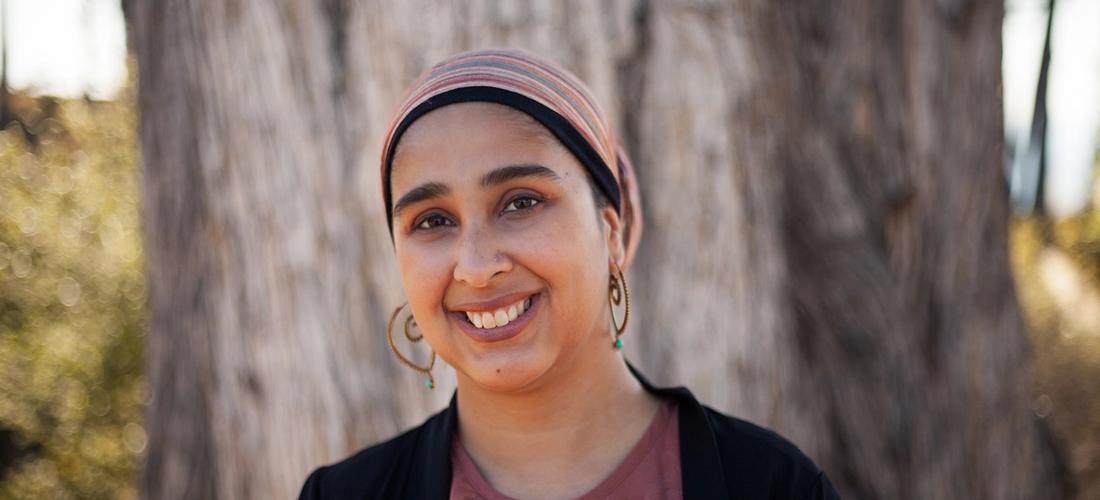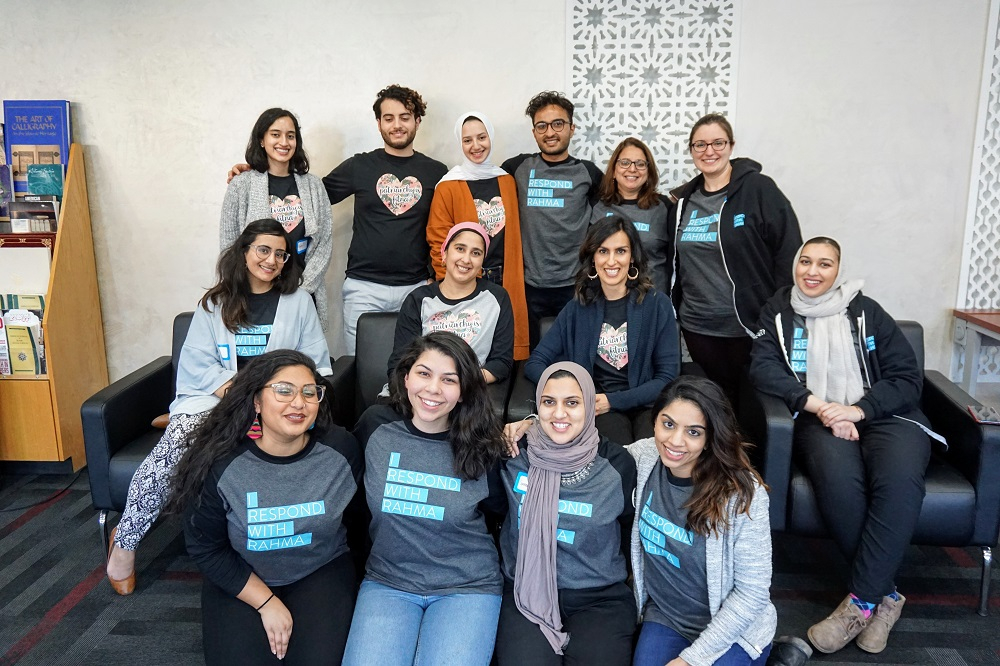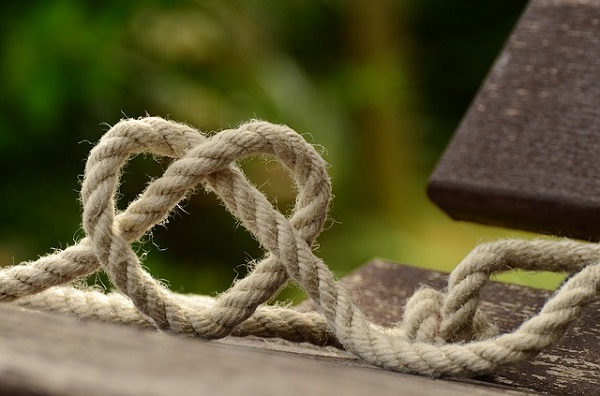How HEART Helps Us Expand Ours to Support Victims of Sexual Abuse
Community
|
Nov 16, 2020
|
6 MIN READ

Nadiah Mohajir of HEART Women & Girls
Editorial note: As we continue our coverage of movements that matter, our writer Layla looks at the important work being done in the area of women’s health and support of sexual abuse survivors. Here, she interviews Nadiah Mohajir, co-founder of HEART Women and Girls, which has sought to destigmatize women’s health issues and support sexual abuse survivors for the past ten years.
Although sexual violence in the U.S. has fallen by half in the last twenty years, it continues to plague Americans and remains a global problem. According to the latest statistics, someone is assaulted every 73 seconds. The majority (48 percent) of sexual assault instances occur in or at the victim’s home and three out of four go unreported. Muslim throughout the nation must also tackle with the realities of sexual abuse existing in their communities and homes while embracing the Islamic mandate to prevent it and support survivors.
We learn about hurma, the inviolable nature of human beings’ bodies, through the examples of Prophet Muhammad (saw), encouraging Muslims to embrace a sense of responsibility toward safeguarding their coreligionists physically, emotionally and spiritually. Sexual abuse is an egregious breach into hurma.
As Dr. Ingrid Mattson explains, “The Prophet (saw) taught his companions that the hurma of a person is equal to the hurma of the sacred months and places. Even a dead person has hurma. That’s why we treat the bodies of our dead brothers and sisters with respect and care. The person [keeps] that sacred inviolability in death. So, how could we possibly be a community that thinks sexual assault and violence are not a priority?”
An appreciation of the challenges in many Muslim communities to ensure the safety and well being of its members (especially the most vulnerable) led to the development of vital Muslim-centered organizations like Peaceful Families Project (focuses on domestic violence prevention), FACE (Facing Abuse in Community Environments) (promotes safer Muslim communities by holding religious and community leaders accountable for abuse) and the Hurma Project (a revival of ethics among those providing pastoral care and claiming the intellectual authority to convey devotional knowledge).
These organizations create much-needed services and raise awareness that we, as an ummah, should want to help purge the dysfunctions and abuses eating away at our communal bodies and devastating those targeted by them, including sexual abuse victims. Supporting survivors of abuse and understanding our own sexual and health rights as Muslim women is an important movement supported by these organizations and by Haute Hijab through our coverage of these topics.
Whenever there is a situation of sexual abuse, survivors disclosing their abuse need understanding and support but often face insensitivity and stigmatization. Nadiah Mohajir recognized the need for a space that validates survivors and raises awareness about the scourge of sexual abuse in Muslim culture, so she co-founded HEART Women & Girls, an organization centering survivors and sexual health issues. Nadiah has spent more than 20 years in public health and reproductive justice.
HEART is celebrating ten years of service to Muslim communities and beyond. I recently spoke with Nadiah about the critical importance for us as worshippers of Allah to destigmatize surviving sexual violence, develop culturally-relevant support and education.

The HEART Women & Girls Team; image source: Nadiah Mohajir
Why HEART?
Nadiah co-founded HEART with Ayesha Akhtar to "provide sexual health education and sexual violence awareness programming and advocacy to thousands of individuals, organizations and campuses across the country. The organization aims to "dismantle the stigma, silence and systems that prevent individuals from seeking information, healing and justice.
In addition to breaking ground in the area of Muslim sexual health education and sexual violence prevention and awareness, HEART offers its team a divergence from the standard organizational model that tends to underappreciate the life experiences and realities of women and people of color. Nadiah told me that she wanted HEART to be a validating space for her team.
“The traditional nonprofit industrial complex is not built for people with intersectional identities,” explains Nadiah. “Dominant culture habits create an environment that often values productivity over people, creating toxic and unhealthy organizational culture. The result is very little work-life balance, with conditions that overwork people and underpay them.”
“As such, this environment becomes harder to sustain the more identities someone may have – the caregiver, the single mother, the woman of color, the survivor of trauma. Their needs are often harder to meet.”
Nadiah refers to her blog post on supporting caregivers for more information on creating intersectional measures of support within an organization and for whom the organization supports.
“HEARTening” The Ummah
Ideally, Muslims are people of empathy, connecting with people’s trauma and seeking to soothe them through their pain. The Prophet Muhammad (saw) said:
Whoever relieves a believer’s distress of the distressful aspects of this world, Allah will rescue him from a difficulty of the difficulties of the Hereafter. (Muslim)
Nadiah describes what sexual abuse survivors may experience in Muslim spaces. “Yes, victims of sexual violence in Muslim communities experience the same barriers that victims in other communities do. They are often shamed or blamed for the violence they experienced, they may find themselves no longer being welcome in their community spaces, or they might be pressured to stay silent about their abuse so that others in the community don't find out.”
Nadiah outlines ways Muslims can help in healing. “We can believe [survivors] when they share their stories. It sounds simple, but too often, this is where we miss the mark. Too often, survivors come forward to their family, their friends, their teachers, or other trusted people in their lives, and are not believed or silenced. The single most important thing you can do is believe someone the first time when they come forward.
“After that, you can tell them that they are not alone. That there are people who can help. That it is natural to feel confused or afraid, and that you will help them find the resources they need to get through this. Our “Responding with RAHMA” framework is really helpful for this.”

Alhamdulillah, it is not all bleak. Nadiah says that she has observed some progress in Muslim communites toward sexual abuse prevention and victim support. “More Muslims are willing to engage in conversations about sexual violence,” she says, “and more Muslims have the language and resources to seek help for their experiences. More institutions are committed to addressing and preventing violence in their spaces.”
Having “HEART” at Home
There is no denying the deteriorating impact of sexual abuse in U.S. Muslim communities. Well, some may still deny it but there is a growing desire in communities to stem the tide and mend rifts of pain. Sexual education plays a major role in generating effective conversations that restore connections between faith, sex and human sanctity. However, a lack of cultural relevance poses an obstacle to permeating spiritually validating sex education for Muslims.
“Mainstream sex education programs typically use a one-size-fits-all approaches,” says Nadiah, “mostly because of the diversity of their audiences. It becomes hard to tailor to each identity.
“Moreover, there is no one ‘standard’ [for schools] in the U.S. [The] sex-ed programming a student gets in school is often informed by the values and beliefs of whomever is in power. Some school districts have very comprehensive programs, while other school districts may select programs with more limited information, [stemming from] their discomfort with [sexual education],” she says.
“[Myopic programs] leave many out of the conversation, such as communities of color, faith communities, LGBTQ people, and differently-abled people.”
HEART provides Muslim-centered sexual education. Nadiah also promotes education on the familial and communal level. She explains how Muslim families can be proactive and engage in productive conversations about sex.
“We can begin with a commitment to open and ongoing conversations with our children from as early as age three,” she says. “This doesn't mean you have to tell them everything. There are age-appropriate ways to start this conversation.
“Teach them correct anatomical terms for their body parts. Use real-life experiences (that don't have to be sexual) to teach them what consent looks like,” Nadiah advises. For example, asking permission before playing with a friend or asking permission to give someone a hug. We can teach them about red flags, what to look out for and when to ask a doctor or someone else for help.
“We have a great guide on talking to kids about sex and another one on talking to them about sexual violence.”
Nadiah and the HEART team plan to expand on the organization’s last ten years of providing crucial resources and educational training and programs across the country, promoting sexual health literacy and sexual assault prevention in Muslim communities. Please help them by taking this survey to develop further programming and support tools.
It does my heart good to know that they are out there.
Subscribe to be the first to know about new product releases, styling ideas and more.
What products are you interested in?

